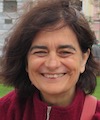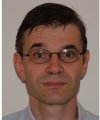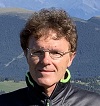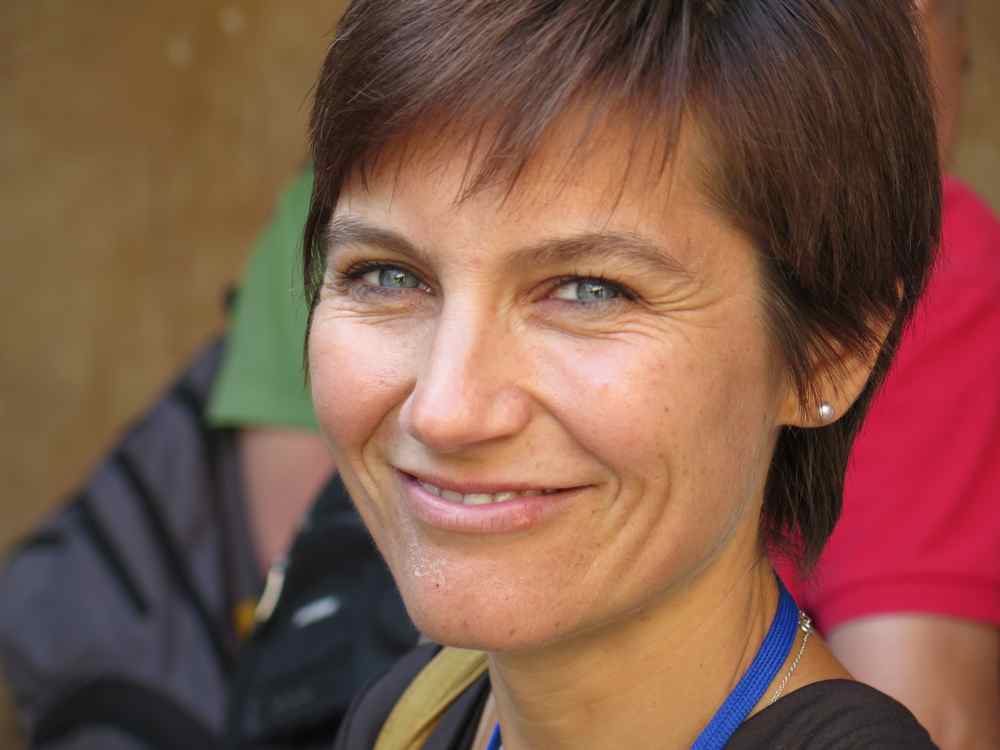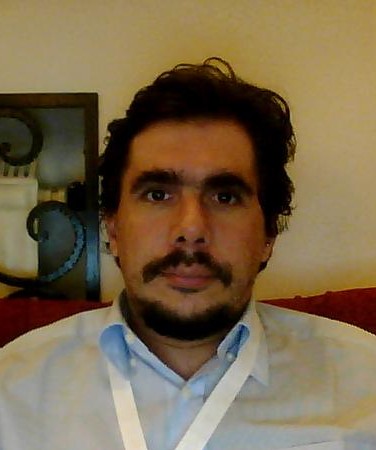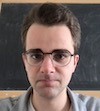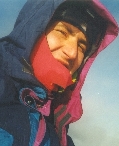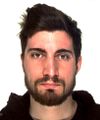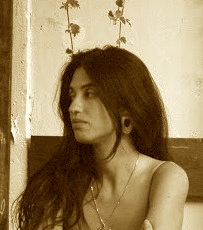Studying at the University of Verona
Here you can find information on the organisational aspects of the Programme, lecture timetables, learning activities and useful contact details for your time at the University, from enrolment to graduation.
Academic calendar
The academic calendar shows the deadlines and scheduled events that are relevant to students, teaching and technical-administrative staff of the University. Public holidays and University closures are also indicated. The academic year normally begins on 1 October each year and ends on 30 September of the following year.
Course calendar
The Academic Calendar sets out the degree programme lecture and exam timetables, as well as the relevant university closure dates..
| Period | From | To |
|---|---|---|
| Semester 1 | Oct 2, 2023 | Jan 26, 2024 |
| Semester 2 | Mar 4, 2024 | Jun 14, 2024 |
| Session | From | To |
|---|---|---|
| Winter exam session | Jan 29, 2024 | Mar 1, 2024 |
| Summer exam session | Jun 17, 2024 | Jul 31, 2024 |
| Autumn exam session | Sep 2, 2024 | Sep 30, 2024 |
| Session | From | To |
|---|---|---|
| Summer graduation session | Jul 22, 2024 | Jul 22, 2024 |
| Autumn graduation session | Oct 22, 2024 | Oct 22, 2024 |
| Winter graduation session | Mar 19, 2025 | Mar 19, 2025 |
| Period | From | To |
|---|---|---|
| Festa di Ognissanti | Nov 1, 2023 | Nov 1, 2023 |
| Festa dell'Immacolata | Dec 8, 2023 | Dec 8, 2023 |
| Vacanze di Natale | Dec 24, 2023 | Jan 7, 2024 |
| Festività pasquali | Mar 29, 2024 | Apr 1, 2024 |
| Ponte della Festa della Liberazione | Apr 25, 2024 | Apr 26, 2024 |
| Festa del Lavoro | May 1, 2024 | May 1, 2024 |
| Festività del Santo Patrono: San Zeno | May 21, 2024 | May 21, 2024 |
| Festa della Repubblica | Jun 2, 2024 | Jun 2, 2024 |
| Vacanze estive | Aug 12, 2024 | Aug 17, 2024 |
Exam calendar
Exam dates and rounds are managed by the relevant Science and Engineering Teaching and Student Services Unit.
To view all the exam sessions available, please use the Exam dashboard on ESSE3.
If you forgot your login details or have problems logging in, please contact the relevant IT HelpDesk, or check the login details recovery web page.
Should you have any doubts or questions, please check the Enrollment FAQs
Academic staff
 mila.dallapreda@univr.it
mila.dallapreda@univr.it
 giulio.fellin@univr.it
giulio.fellin@univr.it
 elena.gaburro@univr.it
elena.gaburro@univr.it
 rosanna.laking@univr.it
rosanna.laking@univr.it
 alessia.mandini@univr.it
alessia.mandini@univr.it
 ramon.oliverbonafoux@univr.it
ramon.oliverbonafoux@univr.it
 claudio.tomazzoli@univr.it
claudio.tomazzoli@univr.it
 franco.zivcovich@univr.it
franco.zivcovich@univr.it
Study Plan
The Study Plan includes all modules, teaching and learning activities that each student will need to undertake during their time at the University.
Please select your Study Plan based on your enrollment year.
1° Year
| Modules | Credits | TAF | SSD |
|---|
2° Year It will be activated in the A.Y. 2024/2025
| Modules | Credits | TAF | SSD |
|---|
| Modules | Credits | TAF | SSD |
|---|
| Modules | Credits | TAF | SSD |
|---|
1 module among the following 1 module between the following (a.a. 2023/24 Homological Algebra not activated - a.a. 2024/25 Computational Algebra not activated)3 modules among the followingLegend | Type of training activity (TTA)
TAF (Type of Educational Activity) All courses and activities are classified into different types of educational activities, indicated by a letter.
Stochastic Calculus (2023/2024)
Teaching code
4S008268
Teacher
Coordinator
Credits
6
Language
English
Scientific Disciplinary Sector (SSD)
MAT/06 - PROBABILITY AND STATISTICS
Period
Semester 2 dal Mar 4, 2024 al Jun 14, 2024.
Courses Single
Authorized
Learning objectives
This course will provide an introduction to the theory of Stochastic Differential Equations (SDEs), mainly based on the Brownian motion type of noise. The purpose of this course is to introduce and analyse probability models that capture the stochastic features of the system under study to predict the short and long term effects that this randomness will have on the systems under consideration. The study of probability models for continuous-time stochastic processes involves a broad range of mathematical and computational tools. This course will strike a balance between the mathematics and the applications. The main applications will be mathematical finance, biology and populations evolution, also with respect to their descriptions in terms of the associated SDEs. Topics include: construction of Brownian motion; martingales in continuous time; stochastic integral; Ito calculus; stochastic differential equations; Girsanov theorem; martingale representation; the Feynman-Kac formula and Lévy processes.
Prerequisites and basic notions
Basic tools of probability calculus, eg: definition of discrete / continuous random variables,, central limit theorem, discrete / continuous time Markov chains.
Program
* Probability essential recalls
* SP: definitions/main properties recall ; Martingales ; Option Sampling Theorem ; Quadratic Variation ;
* Stochastic processes at discrete time: recalls and emphasis on random walk (starting from the binomial model, also in more than 1 dimension);
* Different constructions of the Brownian motion: Kolmogorov Consistency Theorem / Kolmogorov-
Cénstor Th.eorem;
* Properties of the Brownian motion
* Derivation/construction of the Stochastic Integral(s) notion(s)
* Ito-Doeoblin rule: Levy's Criteria / Martingale Representation
* Stratonovich approach / Ito representation Theorem (applications/examples)
* Markov processes and relation(s) with the Brownian motion sp [further Bm's properties]
* Girsanov formula / Cameron-Martin (Girsanov) Theorem and Exponential Martingales
* Construction and rigorous derivation of Stochastic Differential Equations
* Strong solutions / Gronwall Lemma / Weak solutions (for SDEs)
* Diffusions / Semi-group approach / Markov property(ies)
* Dynkin's formula / Kolmogorov equation(s) / Feynman-Kac theorem
* Interplay between PDEs and SPDEs (via F-K theorem)
* SDEs application w.r.t. the Financial framework
Bibliography
Didactic methods
Lectures with sharing of slides, lecture notes, specific bibliographic references for particular theoretical insights.
Learning assessment procedures
Oral exam with written exercise:
the exam is based on open questions and/or on the presentation of a project agreed with the course professor and or on the resolution of written exercises to be solved during the test itself. Questions, open-ended and exercises, aim at verify the knowledge about arguments developed within the course, the solution of related concrete problems as well as to verify the acquired acquaintance using stochastic analysis tools.
Evaluation criteria
Evaluation of the understanding and ability to use of the main tools of stochastic analysis, with emphasis on their rigorous definition / analytical derivation.
Criteria for the composition of the final grade
The final grade is the result of the evaluation of the final oral exam, with the possible inclusion of ongoing assessments relating to projects (optional) carried out by the student.
Exam language
english
Type D and Type F activities
Type D learning activities are the student's choice, type F activities are additional knowledge useful for job placement (internships, transversal skills, project works, etc.). According to the Teaching Regulations of the Course, some activities can be chosen and entered independently in the booklet, others must be approved by a special committee to verify their consistency with the study plan. Type D or F learning activities can be covered by the following activities.
1. Modules taught at the University of Verona
Include the modules listed below and/or in the Course Catalogue (which can also be filtered by language of delivery via Advanced Search).
Booklet entry mode: if the teaching is included among those listed below, the student can enter it independently during the period in which the curriculum is open; otherwise, the student must make a request to the Secretariat, sending the form to carriere.scienze@ateneo.univr.it during the period indicated.
2. CLA certificate or language equivalency
In addition to those required by the curriculum/study plan, the following are recognized for those matriculated from A.Y. 2021/2022:
- English language: 3 CFUs are recognized for each level of proficiency above that required by the course of study (if not already recognized in the previous course of study).
- Other languages and Italian for foreigners: 3 CFUs are recognized for each proficiency level starting from A2 (if not already recognized in the previous study cycle).
These CFUs will be recognized, up to a maximum of 6 CFUs in total, of type F if the study plan allows it, or of type D. Additional elective credits for language knowledge may be recognized only if consistent with the student's educational project and if adequately justified.
Those enrolled until A.Y. 2020/2021 should consult the information found here.
Method of inclusion in the booklet: request the certificate or equivalency from CLA and send it to the Student Secretariat - Careers for the inclusion of the exam in the career, by email: carriere.scienze@ateneo.univr.it
3. Transversal skills
Discover the training paths promoted by the University's TALC - Teaching and learning center intended for students regularly enrolled in the academic year of course delivery https://talc.univr.it/it/competenze-trasversali
Mode of inclusion in the booklet: the teaching is not expected to be included in the curriculum. Only upon obtaining the Open Badge will the booklet CFUs be automatically validated. The registration of CFUs in career is not instantaneous, but there will be some technical time to wait.
4. CONTAMINATION LAB
The Contamination Lab Verona (CLab Verona) is an experiential course with modules on innovation and enterprise culture that offers the opportunity to work in teams with students from all areas to solve challenges set by companies and organisations.
Upon completion of a CLab, students will be entitled to receive 6 CFU (D- or F-type credits).
Find out more: https://www.univr.it/clabverona
PLEASE NOTE: In order to be admitted to any teaching activities, including those of your choice, you must be enrolled in the academic year in which the activities in question are offered. Students who are about to graduate in the December and April sessions are therefore advised NOT to undertake extracurricular activities in the new academic year in which they are not enrolled, as these graduation sessions are valid for students enrolled in the previous academic year. Therefore, students who undertake an activity in an academic year in which they are not enrolled will not be granted CFU credits.
5. Internship/internship period
In addition to the CFUs stipulated in the curriculum/study plan (check carefully what is indicated on the Teaching Regulations): here information on how to activate the internship.
Check in the regulations which activities can be Type D and which can be Type F.
Modules and other activities that can be entered independently in the booklet
| years | Modules | TAF | Teacher |
|---|---|---|---|
| 1° 2° | Introduction to quantum mechanics for quantum computing | D |
Claudia Daffara
(Coordinator)
|
| 1° 2° | Introduction to Robotics for students of scientific courses. | D |
Andrea Calanca
(Coordinator)
|
| 1° 2° | Mathematics mini courses |
Giacomo Albi
(Coordinator)
|
|
| 1° 2° | Web and mobile app design using react and react native | D |
Graziano Pravadelli
(Coordinator)
|
| 1° 2° | Firmware development with bluetooth low energy (BLE) protocol and freertos operating system | D |
Franco Fummi
(Coordinator)
|
| years | Modules | TAF | Teacher |
|---|---|---|---|
| 1° 2° | Introduction to Robotics for students of scientific courses. | D |
Andrea Calanca
(Coordinator)
|
| 1° 2° | Python programming language | D |
Carlo Combi
(Coordinator)
|
| 1° 2° | Mathematics mini courses |
Giacomo Albi
(Coordinator)
|
|
| 1° 2° | Programming Challanges | D |
Romeo Rizzi
(Coordinator)
|
| 1° 2° | Protection of intangible assets (SW and invention)between industrial law and copyright | D |
Mila Dalla Preda
(Coordinator)
|
Career prospects
Module/Programme news
News for students
There you will find information, resources and services useful during your time at the University (Student’s exam record, your study plan on ESSE3, Distance Learning courses, university email account, office forms, administrative procedures, etc.). You can log into MyUnivr with your GIA login details: only in this way will you be able to receive notification of all the notices from your teachers and your secretariat via email and soon also via the Univr app.
Double degree
The University of Verona, through a network of agreements with foreign universities, offers international courses that enable students to gain a Double/Joint degree at the time of graduation. Indeed, students enrolled in a Double/Joint degree programme will be able to obtain both the degree of the University of Verona and the degree issued by the Partner University abroad - where they are expected to attend part of the programme -, in the time it normally takes to gain a common Master’s degree. The institutions concerned shall ensure that both degrees are recognised in the two countries.
Places on these programmes are limited, and admissions and any applicable grants are subject to applicants being selected in a specific Call for applications.
It's online Erasmus + - double joint degree a.y. 2024/2025
The latest Call for applications for Double/Joint Degrees at the University of Verona is available now!
For the presentation of the LA and subsequent recognition of CFUs, please refer to the International Mobility Regulations.
Documents
| Title | Info File |
|---|---|
|
|
pdf, it, 461 KB, 24/11/23 |
|
|
pdf, it, 361 KB, 23/02/24 |
Alternative learning activities
In order to make the study path more flexible, it is possible to request the substitution of some modules with others of the same course of study in Mathematics at the University of Verona (if the educational objectives of the modules to be substituted have already been achieved in the previous career), or with others of the course of study in Mathematics at the University of Trento.Documents
| Title | Info File |
|---|---|
|
|
pdf, it, 167 KB, 27/08/21 |
|
|
pdf, it, 44 KB, 30/08/21 |
|
|
pdf, it, 113 KB, 30/08/21 |
Attendance
As stated in the Teaching Regulations for the A.Y. 2022/2023, except for specific practical or lab activities, attendance is not mandatory. Regarding these activities, please see the web page of each module for information on the number of hours that must be attended on-site.
Career management
Student login and resources
Graduation
Deadlines and administrative fulfilments
For deadlines, administrative fulfilments and notices on graduation sessions, please refer to the Graduation Sessions - Science and Engineering service.
Need to activate a thesis internship
For thesis-related internships, it is not always necessary to activate an internship through the Internship Office. For further information, please consult the dedicated document, which can be found in the 'Documents' section of the Internships and work orientation - Science e Engineering service.
Final examination regulations
Upon completion of the Master’s degree dissertation students are awarded 32 CFU. The final examination consists of a written dissertation on a specific topic agreed with a supervising professor and presented to a commission (Dissertation Committee).
The dissertation can be high-level theoretical or experimental (in the latter case, it may focus on either basic or applied research), it can deal with a theoretical topic or propose the resolution of a specific problem, or description of a work project, and may be carried out at universities, research institutions, schools, laboratories and companies in the framework of internships, traineeships, study stays in Italy and abroad. The dissertation must be original and written by the student under the guidance of a Supervisor. At the request of the student, the dissertation may be written and presented in Italian.
Professors belonging to the Mathematics Teaching Committee, the Department of Computer Science, and any associated departments may be appointed as Supervisors, as well as any professors from the University of Verona whose area of interest (SSD - Scientific-disciplinary Sector) is included in the teaching regulations of the degree programme.
Students may take the final exam only if meeting all requirements set by the School of Sciences and Engineering.
The Master's degree in Mathematics is obtained by successfully passing the final examination and thus earning the 120 CFU included in the study plan.
The material submitted by the student for the final examination will be examined by the Dissertation Committee, which comprises three professors, possibly including the Supervisor, and appointed by the President of the Teaching Committee. The final examination will be assessed based on the following criteria: the student’s performance during the entire study programme, the knowledge acquired during the dissertation work, their understanding of the topic and autonomy of judgment, their ability to apply such knowledge, and communicate effectively and fully all the outcomes of the work and the main results obtained.
The final examination and the degree ceremony will be carried out, in one of the four graduation sessions throughout the academic year, by the Final Examination Committee appointed by the President of the Teaching Committee, and made up of a president and at least four members chosen from among the professors of the University.
For further information, please refer to the Final examination regulations.
Documents
| Title | Info File |
|---|---|
|
|
pdf, it, 31 KB, 02/11/22 |
|
|
pdf, en, 31 KB, 02/11/22 |
|
|
pdf, it, 171 KB, 20/03/24 |
List of theses and work experience proposals
| theses proposals | Research area |
|---|---|
| Controllo di sistemi multiagente | Calculus of variations and optimal control; optimization - Hamilton-Jacobi theories, including dynamic programming |
| Controllo di sistemi multiagente | Calculus of variations and optimal control; optimization - Manifolds |
| Controllo di sistemi multiagente | Calculus of variations and optimal control; optimization - Optimality conditions |
| Formule di rappresentazione per gradienti generalizzati | Mathematics - Analysis |
| Formule di rappresentazione per gradienti generalizzati | Mathematics - Mathematics |
| Mathematics Bachelor and Master thesis titles | Various topics |
| Stage | Research area |
|---|---|
| Internship proposals for students in mathematics | Various topics |

 +39 045 802 7913
+39 045 802 7913

